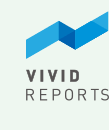In the fast-paced and competitive business world, making informed decisions is paramount to success. Financial reporting and budgeting are at the heart of these critical decisions, providing insights that drive strategic planning and growth. As technology continues to evolve, organizations are increasingly turning to financial reporting and budgeting software solutions to streamline processes and gain a competitive edge. However, before investing in such software, it’s essential to understand the Return on Investment (ROI) that these tools can deliver. In this blog article, we will explore the significance of ROI in financial reporting and budgeting software investments and how they can empower businesses to thrive.
1. Improving Efficiency and Productivity
Manual financial reporting and budgeting processes are time-consuming and prone to human error. Implementing financial reporting and budgeting software automates these tasks, drastically improving efficiency and productivity. With automated data consolidation, real-time reporting, and intuitive interfaces, finance teams can focus on higher-value tasks, such as data analysis and strategic planning. This newfound efficiency translates into cost savings and increased output, driving the ROI of the software investment.
2. Enhanced Data Accuracy and Decision-Making
Accurate financial data is the bedrock of sound decision-making. Traditional spreadsheets and manual data entry leave room for errors that can lead to costly mistakes. Financial reporting and budgeting software solutions are designed to eliminate such errors by automating calculations and data validation. The accuracy and reliability of data empower decision-makers to make well-informed choices that positively impact the organization’s performance.
3. Driving Financial Transparency
Transparency in financial reporting is essential for building trust with stakeholders, including investors, board members, and regulatory bodies. Financial reporting and budgeting software offer real-time visibility into financial data, enabling stakeholders to access up-to-date reports and insights. This transparency fosters trust and confidence, ultimately bolstering the organization’s reputation and potentially attracting more investment opportunities.
4. Strategic Planning and Forecasting
Modern financial reporting and budgeting software often include sophisticated forecasting and scenario analysis capabilities. These tools allow organizations to model different financial scenarios based on changing market conditions, internal factors, and strategic initiatives. By evaluating potential outcomes, businesses can proactively plan for various scenarios, mitigating risks, and capitalizing on opportunities. The ability to adapt swiftly to changing market dynamics contributes to the software’s ROI by driving growth and minimizing losses.
5. Compliance and Risk Mitigation
Financial reporting and budgeting software often come equipped with built-in compliance features, ensuring adherence to accounting standards and regulatory requirements. Automated compliance checks reduce the risk of errors and discrepancies in financial reports, mitigating the potential impact of non-compliance penalties and reputational damage. The software’s contribution to risk mitigation further strengthens its ROI value.
6. Cost Reduction and Resource Optimization
While financial reporting and budgeting software represent an upfront investment, the long-term benefits can lead to substantial cost savings. Automation streamlines processes, reducing the need for manual data entry and processing. The software’s ability to identify cost-saving opportunities through detailed financial analysis contributes to overall cost reduction and resource optimization.
7. Collaboration and Communication
Efficient collaboration and communication within finance teams and other stakeholders are essential for effective financial reporting and budgeting. Many modern software solutions offer collaborative features that streamline the review and approval processes, reducing delays and improving overall efficiency. Smooth communication enhances decision-making and ensures all stakeholders are on the same page, further solidifying the software’s ROI.
Investing in financial reporting and budgeting software is not just a financial decision; it is a strategic move that can significantly impact an organization’s success. Understanding the ROI of such investments goes beyond immediate financial gains. The software improves efficiency, enhances data accuracy, fosters financial transparency, drives strategic planning, ensures compliance, reduces costs, and facilitates collaboration. These combined benefits contribute to the software’s long-term value, empowering organizations to thrive in a competitive landscape. Embracing financial reporting and budgeting software as a strategic asset sets the stage for data-driven decision-making, financial growth, and sustainable success.






